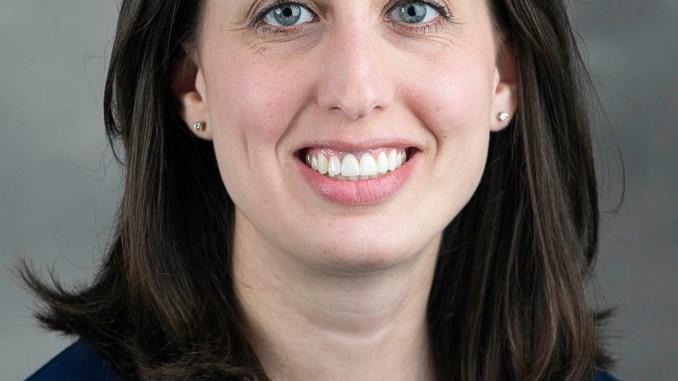

1) What is your current occupation?
I’m an assistant professor in the clinical psychology doctoral program at the University of North Carolina at Greensboro. I maintain an active research lab, teach and mentor students, and provide clinical supervision in our doctoral training clinic.
2) Where were you educated?
I completed my undergraduate degree at the University of Pennsylvania and my doctoral training at Yale University under the mentorship of Susan Nolen-Hoeksema. My training in traumatic stress research started during my postdoctoral fellowship. I completed Terry Keane’s NIMH-T32 fellowship at the National Center for PTSD-Behavioral Sciences Division, where Brian Marx served as my primary mentor.
3) Why did you choose this field?
I’ve always been interested in why people do what they do. As I planned a career, it was important to me to be in a helping profession, but I’ve also always been a big nerd and enjoyed learning new things. Clinical science really appealed to me because I would be able to generate new knowledge that would (hopefully) help others. I became interested in traumatic stress, specifically, during my clinical internship at the Boston VA, where I was treating veterans in a specialty PTSD clinic. I saw parallels between the depression research I was doing at the time and clinical issues that came up in the PTSD clinic, and decided to focus on traumatic stress during my postdoctoral fellowship.
4) What is most rewarding about this work for you?
I enjoy all aspects of my work, but I find mentoring graduate students to be one of the most rewarding parts of my job. I have been fortunate to have exceptionally generous mentors during my training, and I’m glad for the opportunity to “pay it forward” to my students.
5) What is most frustrating about your work?
There is never enough time to do everything you’d like to do!
6) How do you keep your life in balance (e.g., what are your hobbies)?
Outside of work, I enjoy spending time with friends and family, cooking, hiking, skiing, and exercising.
7) What are your future plans?
I plan to continue my research program focusing on the classification, assessment, and treatment of posttraumatic stress disorder and on cognitive and emotion regulation processes that cut across diagnostic categories. I also plan to continue mentoring, teaching, and supervising students. I’ve found that it’s hard to predict where exactly your career may take you, particularly when new opportunities arise that you’ve never considered before. So I’m also excited to see what the future holds!


